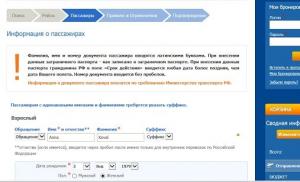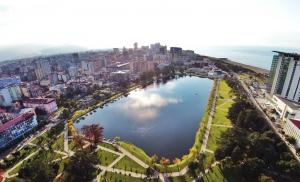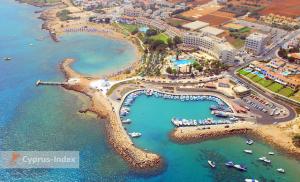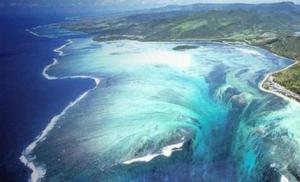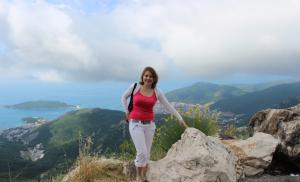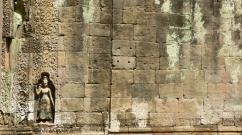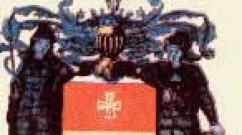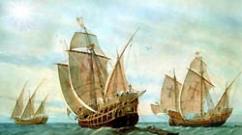Where is the best place to vacation during the year? Where to relax by the sea inexpensively? How different countries fight for Russian tourists
TV channel "360" recalled the most memorable events of the year.
2015 is coming to an end: a lot has happened in 365 days. Some of them were forgotten immediately, others were discussed for months. The 360 TV channel decided to recall the most memorable and important events of the past year.
JANUARY
The agreement on the creation of the EAEU entered into force

On January 1, 2015, the treaty establishing the Eurasian Economic Union (EAEU) came into force. Its members are Russia, Belarus, Kazakhstan, Kyrgyzstan and Armenia. The EAEU pursues a unified policy in economic sectors, and also ensures freedom of movement of capital, goods and services. The Union was created to modernize and increase the competitiveness of the economies of the member countries and create conditions for improving the living standards of their population.
"Leviathan" was left without an Oscar

The focus of public attention in January was the film directed by Andrei Zvyagintsev “Leviathan”. The film about corruption and the problems of the Russian hinterland might not have been noticed, but the film was nominated for an Oscar. Only the lazy and dumb kept silent about Leviathan. The Oscar ultimately went to the Polish "Ida". But on January 12, Zvyagintsev’s film won the Golden Globe in the category “Best Foreign Language Film.”

On January 28, at the winter session of the Parliamentary Assembly of the Council of Europe (PACE), a resolution was adopted to suspend the right of the Russian delegation to vote and be represented in the PACE bureau and committees until April 2015. Russian representatives immediately responded to this step. The head of the Russian delegation, Alexei Pushkov, said that the country would stop participating in the assembly’s activities until the end of 2015, explaining that interaction with European countries is impossible under the sanctions. At the end of this year, restrictive measures against the Russian Federation were extended again, so it remains unknown whether Russia will return to PACE in the coming year.
The Russian Federation has been represented in the Parliamentary Assembly since 1996: then the country became a member of the Council of Europe. Russia has ratified more than 50 conventions international organization, including on human rights, the fight against terrorism and crime, legal cooperation, and pledged to bring its political system and legislation into line with European standards.
FEBRUARY
The Minsk agreements were concluded

On February 12, the Normandy Four negotiations ended. Russian President Vladimir Putin, German Chancellor Angela Merkel, French President Francois Hollande and Ukrainian President Petro Poroshenko discussed ways to resolve the armed conflict in the Donetsk and Lugansk republics for 16 hours. As a result of the negotiations, the second Minsk agreements were signed.
According to the document that everyone agreed to abide by, at 00:00 on February 15, a ceasefire was supposed to come into force in the DPR and LPR. Both sides promised to withdraw heavy weapons within 14 days. And Ukraine had to carry out a constitutional reform and legislatively recognize the special status of certain regions of the Donetsk and Lugansk regions by the end of 2015.
Boris Nemtsov was shot dead in the center of Moscow

On February 27 at around 11:31 p.m., famous politician Boris Nemtsov was killed. He was attacked in the very center of Moscow: killers shot the politician in the back on the Bolshoi Moskvoretsky Bridge near Vasilievsky Spusk. The organizer of the murder, according to the testimony of the detained perpetrators, was an officer of the Sever battalion, Ruslan Mukhudinov. The investigation suspects that Mukhudinov promised those accused of the crime 25 million rubles for the death of the politician. The motives for the murder remained unknown.
MARCH
Russians were banned from traveling to Ukraine using internal passports

Since March 1, Russians have been banned from traveling to Ukraine using internal passports. Now citizens of the Russian Federation can enter the country if they have a foreign passport, service passport, diplomatic passport, flight certificate of an aircraft crew member or a sailor’s passport. Ukraine decided on new rules unilaterally. According to the country's Prime Minister Arseniy Yatsenyuk, they were introduced to strengthen control at the border between countries and “introduce European rules for crossing the state border, including by citizens of the Russian Federation.”
Russia withdrew from the CFE Treaty

On March 11, the Russian Federation withdrew from the Treaty on Conventional Armed Forces in Europe (CFE) and suspended participation in meetings of the Joint Consultative Group (JCG). Russia asked Belarus to represent its interests in the CCG. According to the head of the Russian delegation at the negotiations in Vienna on issues military security and arms control by Anton Mazur, this step did not mean that the Russian Federation was abandoning the dialogue on conventional arms control in Europe (COVE).
The dialogue on the future of COVE was stopped back in 2011 at the initiative of NATO countries. According to Mazur, participation in endless meetings of the JCG has become meaningless for the Russian Federation from a political point of view and costly from an economic point of view.
The CFE Treaty was signed in 1990 and the document came into force in 1992. The treaty was initially signed by 16 NATO countries and six Warsaw Pact member states. The CFE Treaty limited the size of armed forces and determined the number of weapons that countries could deploy in Europe.
Soyuz took astronauts to the ISS for a year

On March 27, the Soyuz manned spacecraft set off from the Baikonur Cosmodrome to the International Space Station (ISS). It delivered three cosmonauts to the ISS: Russians Gennady Padalka and Mikhail Kornienko and NASA astronaut Scott Kelly. The crew will conduct about 50 experiments in orbit.
Kelly and Kornienko will live in orbit for a year. The American astronaut will play a special role in the mission: using his example, scientists will study the negative impact of space on human genes. Kelly's twin brother, who remains on Earth, will help control the changes.
APRIL
Trawler" Far East"sank in the Sea of Okhotsk

On April 2, the trawler "Far East" crashed in the Sea of Okhotsk, 250 kilometers south of Magadan. As a result of the disaster, 56 people died, the fate of 13 is still unknown, 63 people managed to escape. The ship sank in 30 minutes. According to survivors, the wreck was reminiscent of the tragedy of the Titanic, which sank more than 100 years ago.
“Have you seen the Titanic? That’s how it all happened. People were being pulled down. The captain was screaming, calling for help. Everyone was screaming. I also screamed that I wanted to see my wife,” said sailor Evgeniy Vitrikus.
The Large Hadron Collider was launched for the first time in two years

On April 5, the Large Hadron Collider (LHC) was launched for the first time in two years. It was closed for repairs due to problems with the electrical network. Scientists are confident that in the near future the LHC will allow them to unravel the existence of “dark matter.”
The Large Hadron Collider is a charged particle accelerator designed to accelerate heavy ions and protons and study the results of their collisions. The LHC was built in underground tunnel 27 kilometers long on the border of France and Switzerland. On July 4, 2012, physicists announced that they had discovered the Higgs boson using the LHC. Its existence confirmed the validity of the Standard Model of particle physics.
The Russians found the “white walls” of Memphis in Egypt

Russian archaeologists working in the vicinity of Cairo discovered fragments of a white wall during excavations. The finds turned out to be part of the fence of the city of Memphis, which was the capital Ancient Egypt at the beginning of the third millennium BC. In addition to fragments of walls, archaeologists found bronze items and the remains of stoves.
The Russians decided not to stop there and continue excavations to find other historical artifacts.
The European Parliament Committee approved the tightening of anti-Russian sanctions

On May 5, it became known that the European Parliament Committee on Foreign Affairs approved a resolution to tighten sanctions against Russia and provide defensive weapons to Ukraine. Restrictive measures were supposed to become stricter if the Russian Federation did not return Crimea to Ukraine and did not follow the Minsk agreements on a ceasefire in the Donbass.
According to deputies, the return of Crimea is “vitally important” for cooperation between Russia and the European Union. According to the document, EU countries had to intensify their defense capabilities due to Russian military preparations in the Black Sea and in the “annexed” Crimea.
The parade dedicated to the 70th anniversary of the Victory was held in Moscow

In 2015, Russia celebrated the 70th anniversary of the victory in the Great Patriotic War. Large-scale events were held in Moscow in honor of the anniversary. On May 9, about 200 units took part in the parade on Red Square military equipment and more than 15 thousand people. The event became one of the largest in modern Russian history.
Participated in the parade the latest designs equipment - a tank on the platform "Armata", "Boomerang", "Kurganets" and a self-propelled artillery howitzer "Coalition-SV". The air part of the event was opened by the Tu-160 missile-carrying bomber. In total, more than 140 helicopters and airplanes flew over the capital on the holiday.
Team Canada defeated Russia at the World Hockey Championship

On May 17, the Canadian team defeated Russia and won the world hockey title. The final match in the Czech Republic ended with a score of 6:1. Canada became the world champion in hockey for the 25th time.
After the USA semi-final match, many Russians began to hope for the victory of the domestic team: the game ended with a score of 4:0, largely thanks to the skill of goalkeeper Sergei Bobrovsky. In the final, the Russians were unable to retain the championship title, which was won in Minsk at the 2014 World Cup.
Senior FIFA officials arrested

At the end of May, a major corruption scandal occurred in the International Football Federation (FIFA). On May 27, on the eve of the FIFA Congress, Swiss police arrested high-ranking members of the association: Vice President Jeffrey Webb, former head of the South American Football Confederation Eugenio Figueredo, head of the Venezuelan Football Federation Rafael Esquivel, former President of the Brazilian Football Confederation Jose Maria Marin. A total of 14 people were detained. At the same time, American police searched the headquarters of the Football Confederation of North and Central America and countries Caribbean(CONCACAF) in the USA.
FIFA officials are suspected of money laundering and criminal negligence. Corrupt practices include the allocation of World Cup venues, as well as advertising and broadcast rights. According to the indictment, members of the association are suspected of bribes amounting to more than $150 million.
JULY
State Duma elections were postponed to September 2016

On July 3, State Duma deputies in the second and third readings adopted a bill to postpone parliamentary elections from December 4 to the third Sunday of September 2016. 102 deputies voted “against” the decision, 339 people voted “for”. The leaders of United Russia, A Just Russia, the Liberal Democratic Party and State Duma Speaker Sergei Naryshkin proposed postponing the election date. If amendments to the articles of the federal law are approved by the Federation Council and signed by Russian President Vladimir Putin, then elections will be held in September and after 2016.
IOC members have chosen the capital of the 2022 Winter Olympics

The capital of the 2022 Winter Paralympic and Olympic Games is Beijing (PRC). The corresponding decision was made by members of the International Olympic Committee (IOC). Beijing's main rival was Alma-Ata (Kazakhstan). According to the voting results, the capital of the People's Republic of China received 44 votes, 40 people voted for Alma-Ata, and one IOC member abstained. Previously, Stockholm (Sweden), Oslo (Norway), Lviv (Ukraine) and Krakow (Poland) dropped out of the competition for the title of the capital of the Olympic Games.
AUGUST
Russia and France terminated the Mistral contract

On the evening of August 5, the Kremlin press service reported that France transferred to Russia funds paid to the Russian Federation under a contract for the supply of two Mistral-class helicopter carrier ships back in 2011. The decision to terminate the contract for their construction was made by French President Francois Hollande and Russian President Vladimir Putin.
French state defense company DCNS, which builds warships, and Rosoboronexport signed a contract to build the Mistrals in June 2011. In 2014, when the EU decided to impose sanctions against Russia, Paris froze the supply of helicopter carriers. The cost of the contract for the construction of the Mistrals was 1.2 billion euros.
Sanctioned products in the Russian Federation began to be crushed by tractors

On August 6, a law on the elimination of sanctioned products “by any available means” began to work in Russia. On the very first day, Rosselkhoznadzor press secretary Yulia Melano reported that in Belgorod, 10 tons of cheese would first be crushed with a roller and then buried. Videos have appeared on the Internet showing chickens, geese, cheeses, tomatoes, peaches and other products being crushed by huge tractors. In Moscow and the Moscow region they approached the matter a little more rationally: they decided to process the sanctioned meat into flour for animal feed.
More than 250 thousand Russians spoke out against the destruction of fresh food. They signed a petition asking for food to be donated to those in need. However, in response, the press secretary of the Russian President Dmitry Peskov stated that the decree is mandatory for execution. In just nine days, 900 tons of sanctioned products were destroyed in Russia.
SEPTEMBER
Kotelniki metro station opened in Moscow

On September 21, Governor of the Moscow Region Andrei Vorobyov and Mayor of the capital Sergei Sobyanin opened a new metro station "Kotelniki" on the Tagansko-Krasnopresnenskaya line. The facility will improve transport accessibility: According to preliminary data, about 140 thousand people will use the new station per day.
Construction of Kotelniki began in 2012. One of the station's lobbies is located on the territory of the capital and overlooks Novoryazanskoye Highway, Marshal Poluboyarov and Privolnaya streets. Through the second exit you can enter the territory of Kotelniki near Moscow. The station should relieve pressure on the Zhulebino and Vykhino stops on the Tagasnko-Krasnopresnenskaya line.
Russia began striking ISIS positions in Syria

On September 30, the Federation Council allowed the President of the Russian Federation to use Russian troops abroad. On the same day, the country's air forces began to participate in the military operation in Syria. The first airstrike was carried out on militant positions near the city of Holmes, which is located in the west of the country. Russian Aerospace Forces are bombing ammunition and weapons depots, military equipment, vehicles, control posts and communications centers of the Islamic State militants (the activities of the terrorist organization are prohibited on the territory of the Russian Federation). Videos of new airstrikes regularly appeared on the official Facebook and Instagram of the Russian Ministry of Defense.
OCTOBER
Russia and Ukraine have stopped direct flights

On October 25, Russia and Ukraine suspended direct flights between the countries. This happened after on September 16, the Ukrainian authorities imposed sanctions on 25 Russian carriers that flew to Crimea. The country's authorities also banned transit for Russian companies. In response, the Russian Federation took mirror measures, closing the sky to Ukrainian carriers.
Transaero Airlines ceased to exist

On October 26, the Transaero airline, which offered international and domestic flights at low prices on the market, ceased to exist. Rosaviation canceled the operator's certificate of Transaero. The airline transferred 56 routes to Aeroflot for a year.
The company's debts amounted to more than 250 billion rubles. In September, Aeroflot was going to buy Transaero for a symbolic sum, one ruble, but the deal fell through. Later it became known that the S7 group could buy 51% of the carrier’s shares. However, co-owner of the company Vladislav Filev withdrew from the deal due to unresolved legal claims against Transaero: a significant part of the carrier’s shares are pledged to VTB and other creditor banks.
A businessman shot and killed four people in the Moscow region

On October 19, a series of high-profile murders occurred in the Moscow region. Businessman Amiran Georgadze carried a weapon into the Krasnogorsk district administration building, where he shot and killed the deputy head of the municipal administration, Yuri Karaulov, and the head of the Krasnogorsk Electric Network, Georgy Kotlyarenko. Georgadze also killed his business partner and an employee of the Moskovsky Komsomolets newspaper, who wanted to help the entrepreneur, thinking that he felt ill.
The reasons for Georgadze’s action remained unknown: versions were put forward that he had failed due to debts, or that he demanded $20 million from the murdered officials to get out of business. Georgadze’s son said that he does not know that someone took away the man’s business. He had not heard about the 20 million dollars that his father allegedly demanded from officials.
The businessman’s body was discovered on October 23 in a house not far from the residence of the head of the Krasnogorsk district administration, Boris Rasskazov. According to the Investigative Committee, the killer had two Makarov pistols in his hands. The weapon used to commit the murder was stolen in the 90s from the Izhevsk plant. According to preliminary data, the man shot himself on the day of the murders - October 19.
AirplaneAirbusA321 crashed over Sinai: 224 people were killed

On the morning of October 31, a Russian aircraft A321 "", flying on the route Sharm el-Sheikh - St. Petersburg, crashed in Sinai. The Investigative Committee of the Russian Federation opened a criminal case under Article 263 of the Criminal Code of the Russian Federation (“Violation of traffic safety and operation rules air transport"). As a result of the plane crash, all 224 people on board died.
Decoding the data from the plane's "black box" did not help determine the cause of the crash. His data suggests that throughout the entire 20 minutes of the flight, the systems worked properly, and the airliner almost reached the specified altitude. However, then a certain event occurred, after which the operation of all aircraft systems was suddenly interrupted.
On November 17, FSB Director Alexander Bortnikov said that the A321 plane crashed due to a bomb explosion on board. The power of the homemade explosive device was up to one kilogram of TNT.
NOVEMBER
130 people died due to terrorist attacks in Paris

On the evening of November 13, several groups of terrorists carried out six attacks in various parts of Paris (France). Almost simultaneously, visitors to several cafes and restaurants were shot, explosions occurred near the Stade de France stadium, where a friendly match between the German and French national teams was taking place, a suicide bomber blew himself up on Voltaire Boulevard, and several terrorists took 100 people hostage in concert hall"Bataclan". As of November 20, the attacks had killed 130 people and injured more than 350, with about 100 of them in critical condition.
In terms of the number of victims, these terrorist attacks were among the largest in the history of France. A state of emergency was introduced in the country for the first time since 2005. The attacks were not carried out in tourist places, but in an ordinary area of Paris, when people were relaxing after the working week. Most of the dead were young people between 20 and 30 years old.
Turkish Air Force shot down Russian Su-24M bomber

On November 24, a Turkish Air Force fighter shot down a Russian Su-24M bomber. Ankara said the Russian plane violated the country's airspace near the border with Syria. The Russian Ministry of Defense reported that the Su-24M did not fly into Turkish territory. Russian President Vladimir Putin said the attack was a “stab in the back” of the Russian Federation. The crew of the plane was able to eject, but its commander Oleg Peshkov was killed from the ground.
On November 28, Putin signed a decree prohibiting the hiring of workers who are Turkish citizens. It will come into force on January 1, 2016. Starting next year, the visa-free agreement with the country will no longer apply. There will also be a ban on the import of certain goods from Turkey.
DECEMBER
The EU extended sanctions against Russia

On December 21, the Council of the European Union officially extended the sanctions against Russia for six months, until July 31, 2016. The duration of restrictive measures has been increased since the Minsk agreements will not be fully implemented by December 31, 2015. The composition of the sanctions list will not be changed: restrictive measures are directed against about 200 companies and people representing Donbass and Russia.
Technopark metro station opened in Moscow

Opened in Moscow on December 28 new station"Technopark" of the Zamoskvoretskaya line of the capital's subway. Now there are 198 stations in the Moscow metro, 22 of them are located on the “green” line. The Technopark was built between the operating Kolomenskaya and Avtozavodskaya stations. The facility was built on an existing line without stopping trains; work began at the end of 2013. Technopark will serve about 20 thousand people per hour. On the basis of this station they are going to create a transport hub (TPU).
The dollar reached its 2015 high

On December 28, the dollar reached its 2015 high. As of 13:15, on the Moscow Exchange the American currency rose in price by 1 ruble 66 kopecks and was trading at 72 rubles 35 kopecks. The euro increased in price by 1 ruble 90 kopecks to 79 rubles 44 kopecks. The dollar exceeded the 72 ruble mark for the first time in a year. The euro has reached new highs over the past four months.
Nina Pogorelova
We bring to your attention expert forecasts about which resorts will be the most popular next holiday season.
Where to relax in Russia
 All experts agree that the popularity of holidays in one’s home country is growing and will become a long-term trend.
All experts agree that the popularity of holidays in one’s home country is growing and will become a long-term trend.
According to Vladislav Shevtsov, head of the online service DaTravel.com, the most popular holiday destinations are quite expected to be Crimea and Sochi. The search site Momondo notes that you can also relax in other areas: the popularity of tickets to Anapa has increased by 150%, to Minvody - by 126%, and to Samara - by 44%.
Oleg Safonov, interim head of Rostourism, recommends that tour operators who have been working in foreign destinations for a long time do not forget about Russian resorts, in which more and more hotels are switching to the all-inclusive system. This means that international-level holidays can be offered in our country, especially since it is possible charter flights from different cities. “If in 2014 18 regions took part in the targeted Federal program for the development of tourism, then in the future there will be 26 of them and the budget will allocate 5.2 billion rubles compared to 4.6 billion this year,” notes Safonov.
On the beaches of Turkey and Egypt
Vladislav Shevtsov is confident that the popularity of Turkey, Thailand, Egypt and other beach destinations will not decrease, but Spain and Greece, which are more expensive and require a visa, may “sag.” Independent travelers willingly go to Thailand, Spain and Istanbul. You can also count on moderate prices, especially in mass resorts like Antalya and Hurghada, where tourists from Russia provide the majority of the income. The owners of local hotels responded adequately by lowering prices to the fall of the ruble.
Alexander Burtin, co-owner of the Tez Tour company, notes that the discounts averaged 20%. Tours priced in rubles have still risen in price, but not so dramatically. Tour operators took this into account and redirected their programs towards budget popular resorts. No matter how economic circumstances develop, trips to Turkey and Egypt will not become more expensive, remaining at last year’s level.
DaTravel experts note the unexpected popularity of air tickets to London and Paris, and they are bought in advance and especially at times of weakening of the ruble. This means that Russians, under all circumstances, are not going to give up spring trips to expensive European capitals. It’s better to choose real estate on the website - http://prian.ru/france/land/. Objectively and a large selection!
East direction
 However, Europe is becoming more expensive and Russian travelers are increasingly targeting Asia - Vietnam, Thailand, Cambodia, China. Irina Ryabovol, representative of Momondo in Russia, notes that the main advantage of Asian countries is inexpensive goods and services, only air travel requires costs. It’s also warm there all year round and there are no visa problems.
However, Europe is becoming more expensive and Russian travelers are increasingly targeting Asia - Vietnam, Thailand, Cambodia, China. Irina Ryabovol, representative of Momondo in Russia, notes that the main advantage of Asian countries is inexpensive goods and services, only air travel requires costs. It’s also warm there all year round and there are no visa problems.
Skyscanner.ru search engine experts are optimistic about Asian travel, highlighting a number of promising routes:
South Korea, which recently abolished visas for Russians, is very interesting, there are plenty of flights there and the popularity of this destination is actively growing;
Sri Lanka does not require a preliminary visa; it is issued at the airport, and flying on cheap low-hoster flydubai flights through the Emirates allows you to fly on vacation without extra costs;
Cambodia, which we previously visited on excursions while vacationing in Thailand, has become independent route with low prices and many interesting places(one temple complex Angkor Wat is worth it);
Brazil, where a visa is not required, and both service and security are improving for the 2016 Olympics.
Schengen requires fingerprints
For European trips, starting from the summer of 2015, you will have to submit fingerprints - Schengen visas will become biometric for Russians. This is not the result of sanctions: the new product is valid in many countries and has been planned for a long time. All that remains is to equip the consulates in Russia with the appropriate equipment. Fingerprints are expected to be taken every five years when you first apply for a visa. For residents of those regions where there are no consulates, this will be inconvenient: they will have to travel, since it will no longer be possible to submit documents through a travel agency.
TO visa-free countries Indonesia is added (although there were no problems there, they were installed for $30 at the airport) and negotiations take place with Mexico.
The main result of the year is that the Russian population remains optimistic. The main lesson: emotions are a bad adviser when making decisions. The main wish is to calculate the reaction of citizens and trust them more. The lack of feedback is the main obstacle to the development of Russia. If Russia is economically strong, then the West will not have to ask for anything, it will come and give everything.
Victory Parade in Moscow 2015. No comments
1. Parade on May 9 to commemorate the 70th anniversary. Western leaders ignored the Victory Parade due to the Ukrainian crisis. Polish President Bronislaw Komorowski said that the parade is a threat to both Poland and peace throughout the world. But with him were thirty leaders of other countries who watched the holiday from the stands at the Kremlin wall, including the Chairman of the People's Republic of China.
"Victory Day has become the most important holiday in Russia, leaving behind Easter and New Year. Emotions overwhelmed people, as if Germany had just been defeated! And the unity of the people on this holiday made it clear that the Russians are ready again to defeat any country that dares to attack it,” wrote the Frankfurter Allgemeine Zeitung.
2. Russia began at the end of September to support the Syrians who are now fighting for the future of their homeland. Others - tens of thousands of young, healthy men - now live in European cities, wandering around Europe in search of an easy life. Yes, we can say that they do not want to die for the “bloody dictator”. But even in the Soviet Union, not everyone madly loved Joseph Stalin, but fought when difficult times came.
Both schoolchildren and old people fought, and not for a specific power structure or its personnel, but for the Soviet Union. That's why we held this unforgettable Victory Parade. Will Syria carry it out? For Russia, the October ones on the positions of the “Islamic State” (the launch of Caliber missiles from the ships of the Caspian Flotilla) and the December ones from the diesel-electric submarine “Rostov-on-Don” from the Mediterranean Sea were of significant geostrategic significance.
In Brazil, socialist President Dilma Rousseff is subject to severe pressure from the opposition, a declaration has been made against it. It can be said that Moscow missed these changes, but, unfortunately, in order to influence these processes, desire alone is not enough, you need a financial resource, good diplomats and support from diaspora. There is nothing of this yet.
2014 was not the easiest year for global financial markets. However, the market is a market: someone always loses and someone always finds. Considering that not all reliable assets brought profit in the past year, it is worth considering other alternatives for investment. MarketWatch has compiled a rating of what is best to invest in in the coming year.
In first place, oddly enough, is the American stock market. The S&P 500 broad market index is currently at its highest level since 2005. However, writes a MarketWatch columnist Jeff Reeves, this is not a reason to panic. He calls the considered “safe” bond market much more dangerous. Given the improving situation in the US economy, companies will earn more, this will support their shares. And even if explosive growth does not occur, then a fall in these assets still looks unlikely.
In second place are shares of technology companies. These securities have been leaders in such ratings for several years now, and 2015 will not be an exception. Funds focused on, for example, the Dow Jones will benefit here. The biggest driver for the sector will be increased spending by high-tech businesses on new developments, as well as organic growth from both large companies like Facebook and smaller ones.
The high-tech sector is followed by the financial sector in terms of investment prospects. While many investors may not trust banks since the financial crisis, they have significantly improved their balance sheets in recent years and their future looks very good in 2015. If US consumer spending remains high through the end of 2014 and into the New Year, this trend will continue. Plus, the prospect of Federal Reserve tightening could lead to higher interest rates and higher lending margins in 2015.
There are interesting opportunities in emerging markets as well. Among them are India and Indian companies. This market is worth paying serious attention to. Yes, this country has been battered by high inflation and political strife, but it is a very fast growing economy. Inflation there has now fallen from a peak of 11% in January to 5.5%, showing that the problem can be solved thanks to the actions of the Reserve Bank of India. India's GDP growth rate will rise from 5.6% this year to 6.4% in 2015, according to the IMF and World Bank, putting India just below China, which continues to grapple with a slowing economy.
In general, the global picture on financial markets does not look catastrophic. The situation here may not be as bad as some analysts now think. Moreover, most of the negativity has already been taken into account by the market. Therefore, for example, Goldman Sachs predicts the prospects of markets such as Japan and even Europe, as well as emerging markets such as China. And if you don’t trust the American economy, then investing in the economy Asian countries will also be very profitable and will allow you to hedge risks.
The next good opportunity is the US dollar, which will remain strong. Troubles in a number of global countries around the world have led to the dollar's rise relative to other currencies. And now it is almost impossible to imagine a place where the dollar will lose ground.
Indeed, almost all of these opportunities are a good investment, agree the majority of analysts surveyed by Expert Online. Kira Yukhtenko, a leading analyst at the FBS brokerage company, also advises buying the dollar in 2015, as the American economy is recovering and the US monetary authorities are confidently moving towards tightening monetary policy. Commodity currencies, in particular the ruble, will continue to fall in price, so to preserve and increase savings, a reliable American currency is the best tool. The American stock market also looks attractive for investment, as do shares of companies in the high-tech sector.
For investments with a high probability of positive return, head of department trust management Absolut Bank Ivan Fomenko also includes the US market. It becomes clear that the growth of American stocks depends not only on stimulation from the Fed. The high-tech sector should be considered as the engine of the American stock market. It will continue to be among the best, maintaining high revenue growth potential. At the same time, the expert agrees, the dollar will remain strong, at least in the first half of 2015.
Financial consultant of vvCube group of companies Anastasia Mylnikova, considers gold an interesting asset. Investing in gold has always been considered a safe investment. Now prices for the yellow metal are growing slightly, but they are growing. As for investments in technology, the expert is sure that they have always been, are and will be profitable and promising. The only negative is that they are designed for a fairly long payback period and are not suitable for those who plan to receive income in a short period of time. Real estate cannot be discounted either - even if during a crisis its value falls, then in any case it will win back the losses.
For Russia, investing in real estate is also relevant, and it is better to do this before the new year, since real estate prices will jump sharply from January, suggests the asset manager of the Maguta Fund Management Company. Platon Maguta. Most likely, prices in dollars will decrease by 20-25%, in rubles - vice versa. In the next 4-5 years, prices will at least double. Experts who have developed a guide to profitable investments agree with his opinion.
He also believes that you can invest, for example, in jewelry, which is now a fairly popular alternative investment. For qualified investors in Russia, the most attractive investments will be in shares of export-oriented companies, since in the context of ruble devaluation, such companies will have a significant incentive and advantage to improve financial performance.
In the meantime, we must understand that in 2014 the world nevertheless entered a crisis, an independent analyst believes Dmitry Adamidov. So far this is clearly visible in Russia, Ukraine, and the “peripheral” EU countries, but by the end of 2015 it will certainly affect all other economies. And the crisis will most likely also spread “from the foreign exchange market” - problems will arise in the most liquid sectors (currencies and government securities), and then appear on the stock and commodity markets. In this situation, the risks are very high, but the most reasonable strategy seems to be the purchase of obviously undervalued assets. For example, you can already pick up gold, which has fallen significantly in price over the past year and a half. Or Russian bonds and preferred shares - which (especially in foreign currency equivalent) are inexpensive and provide decent returns.
The same applies to international operations. Analysts in Asia single out India because its economy is not as export-driven as China and Japan and has growth potential. But, Adamidov believes, the time for “carpet” investing is over - objects even in promising markets must be chosen extremely carefully. And entry timing is also now key. There are plenty of examples of this even in the Russian market: Mechel or AFK Sistema, which were feeling poorly, could nevertheless bring investors up to 100% in 1-2 days if they entered their shares in time, without succumbing to general panic. As always, it remains important for the investor to correctly assess the risks and determine the “entry point” into the market.
But the main rule for everyone, concludes Anastasia Mylnikova, is that all investments must be diversified.
The yearbook Lonely Planet Best in travel traditionally talks about various areas of tourism, including grouping them “by interests.” Before 2015, the publication will be published in Russia for the first time - AiF.ru publishes an excerpt from the yearbook dedicated to travel of all types - from budget holiday to luxurious.
1. Tunisia
Today, when Tunisia is mentioned, the conversation is no longer about security, but about the restoration of the tourism industry and a new look at the country's hospitable capabilities. The security issue in Tunisia has been improved, so tourists are once again paying attention to the most compact offer in North Africa.
This year, with prices kept low (to attract tourists back) and resorts less crowded, you'll have Tunisia to yourself. Stay in cosmopolitan Tunisia, go see the scenery for " Star Wars" Or, explore the Roman (and Carthaginian!) ruins in the north of the country.
Seasonal charters from European airports to Djerba will allow you to save a lot.

The old town of Tunisia was used as a set for Star Wars. Photo: www.globallookpress.com
Exchange rate fluctuations mean that for some travellers, South Africa is more affordable than ever. Instead of just being surprised by the cheap rand (South African currency), check out the list of options the country offers for budget travelers. A fantastic world of wildlife for every pocket, inexpensive (and tourist friendly) public transport and free entry to the country's most important museums. If the rate fluctuates in your favor, you are in luck. However, regardless of this, any tourist will find entertainment here that suits their budget, be it a fun coastal cafe in Cape Town or an affordable campsite. Come in the off-season (in South Africa these are February, March, September and October), and you will get the best combination of comfortable weather and lack of crowds of tourists.

Republic of South Africa. Photo: www.globallookpress.com
Despite all the high-end discoveries in China's most famous coastal city, Shanghai remains surprisingly affordable for budget tourists. A bed in the dormitory will cost only $10; Nice low prices are waiting for you in hotels of the mid-price segment (there is a noticeable difference in hotels of international chains and fashionable boutique hotels). It’s the same with food: typical street food stalls for a dollar and large portions in popular restaurants for a little more money. And most importantly, walking along the safe and noisy streets of the metropolis will not cost you a single yuan.

Romania. Photo: www.globallookpress.com
Burkina Faso (or simply Burkina - because we are switching to "you") is still considered a rare pearl. Little known, but leaving such an indelible impression on travelers that, once they have visited, they long to return there. They talk about vibrant markets, friendly local residents, mesmerizing rock formations and endless energy of Ouagadougou - the capital with an unpronounceable name. Affordable prices and a surprisingly good safari in the south of the country - the best introduction to West Africa can't be found.
Traveling around Burkina is easy with air-conditioned buses. Buses always run on schedule; tickets can be purchased in advance. Colorful taxi-brousses (bush taxis) go to more remote corners of the country.

Burkina Faso. Photo: www.globallookpress.com
Excerpt provided by EKSMO publishing house
